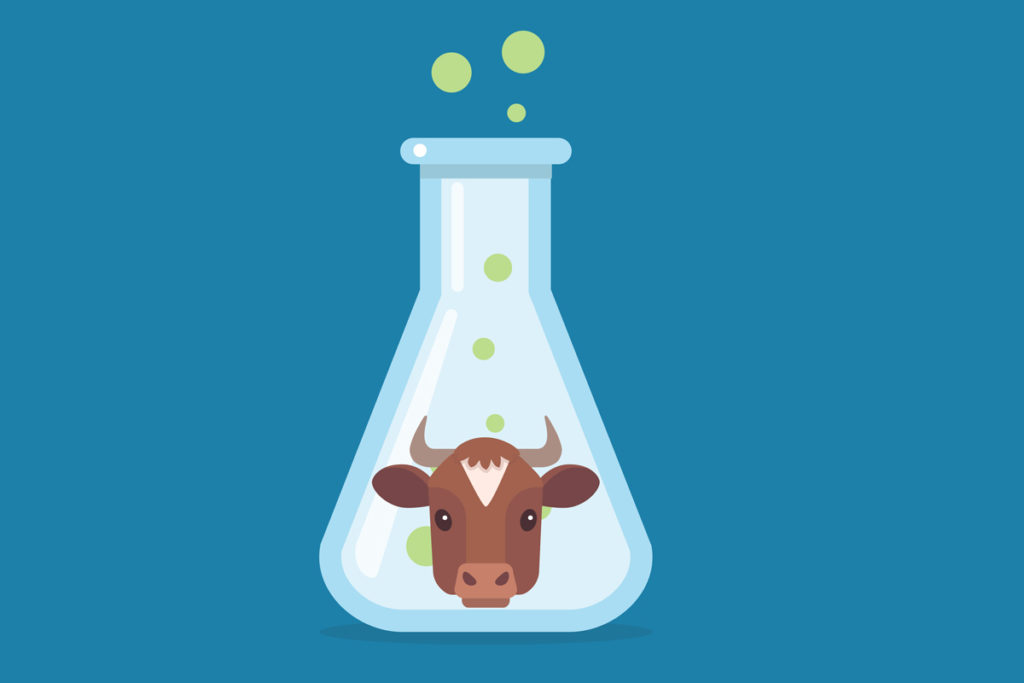May 2020 Question of the Month: Is Meat From a Lab the Future of, Well, Meat?
Share your thoughts about lab-grown meat and food science.

If you believe the hype from some well-financed companies, lab-grown meat that strives to emulate whole animal muscle could pave the way to revolutionizing food production, providing a more sustainable, more ethical alternative to industrial-scale meat production.
For instance, the Colorado-based company Emergy Foods says it has developed a whole cut of vegan-friendly fungi-based steak cultivated from fast-growing mycelium (instead of cows) and is hoping to sell the product under the alternative meat brand Meati Foods. Imagine slicing into a vat-grown juicy steak that required no animal to be slaughtered and no use of fertilizers to grow grains for cattle feed.
But getting these types of Jetsons-worthy alt-meats from the petri dish to the steakhouse means overcoming major hurdles: figuring out how to produce large amounts of the new foods; getting a skeptical public to accept cell-cultured and fungal products; and giving the alternatives the texture, taste and nutritional makeup of the real stuff. Low-impact meat that is indistinguishable in all aspects from regular meat will be the holy grail. Researchers at Harvard’s John A. Paulson School of Engineering and Applied Sciences say that rabbit and cow muscle cells they have grown on edible gelatin mimic the texture and consistency of true meat.
Do you think “cultured meat” is a future solution to providing hyperefficient protein? Would you be willing to give up meat sourced from once-live animals for “steak” and “chicken breast” made from fungi and other items? What do you consider the pros and cons of this food science?
Share your thoughts with us content@ideafit.com.





